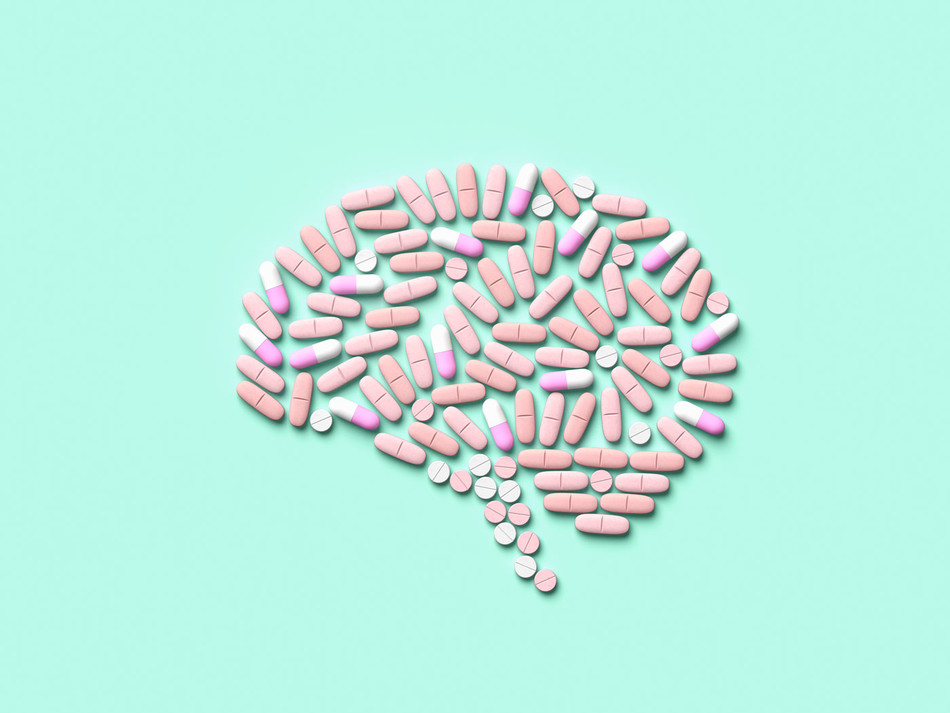Multivitamins have come under a lot of scrutiny in recent years, as numerous studies have failed to confirm that they protect against cancer, heart disease, diabetes, or other common ailments. Indeed, the medical community is split on whether we should bother taking them at all. Some physicians say that healthy adults who follow a relatively well-balanced diet do not need supplements. Others continue to recommend them in the belief that larger, more rigorous trials may still reveal that multivitamins provide significant health benefits.
Now a new study by scientists at Columbia and Harvard lends credence to the idea that multivitamins have hidden value, finding evidence that they can slow the pace of age-related memory loss. The study, led by Columbia neuropsychologist Adam Brickman, is considered consequential because it was a randomized controlled trial — the gold standard of health and medical research. More than 3,500 people over the age of sixty were randomly assigned to take either a standard multivitamin or a placebo every day for three years and were given memory tests annually. Those who took the daily multivitamin performed much better on the tests at the end of the first year and by the end of the study had been spared the equivalent of three years’ worth of expected age-related memory decline.
“The benefits we observed would seem subtle to someone experiencing them, but from a statistical standpoint, the effect was very clear, very powerful,” says Brickman, whose paper appears in the American Journal of Clinical Nutrition.
Importantly, the Columbia study replicates the findings of another large clinical trial on the memory-enhancing potential of multivitamins in older adults, completed last year by scientists at Harvard and Wake Forest. Despite using different methods, the two studies produced remarkably similar results, with both finding that people with a history of cardiovascular disease experienced the most pronounced cognitive benefits from taking a multivitamin — a discovery that the researchers say could be a sign that these individuals were eating less-healthy food or absorbing fewer nutrients and therefore had more nutritional gaps to fill. Both studies used a popular multivitamin, Centrum Silver, although the researchers say that any high-quality multivitamin is likely to produce the same results. (The study was supported by grants from Mars Edge, a division of the Mars food company that focuses on nutrition products, and the National Institutes of Health, with multivitamins supplied by Pfizer.)
Further research will be needed to identify the specific nutrients that boosted people’s memory, but Brickman says that previous laboratory experiments point to vitamin B, vitamin D, zinc, and magnesium as likely candidates. “It may be that there isn’t a single magic bullet but that these nutrients and others are working together to maintain brain function as we age,” he says.
Should doctors now recommend multivitamins to all their patients? Not just yet. “We don’t know yet how long the benefits that we observed will endure or if they’ll have any bearing on whether someone develops dementia, Alzheimer’s disease, or other serious memory problems,” says Brickman, a professor of neuropsychology at Columbia University Vagelos College of Physicians and Surgeons. “These are vital questions.”
Nevertheless, his team’s latest discovery is a rare piece of encouraging news for millions of people who are already taking multivitamins, including some 40 percent of all Americans over sixty. Until now, multivitamins had only been shown to help prevent a small number of medical conditions, including cataracts and macular degeneration. Brickman, who is forty-nine, says that the prospect of staving off memory loss by a few years was enough to inspire him to start taking a daily multivitamin. “I hadn’t taken one since I was a kid,” he says. “But as soon as I saw our data, I started up again.”
To others considering a similar course of action, he offers a few notes of caution. First, it is important to consult a physician before taking any dietary supplements, including daily multivitamins, in part to make sure that they won’t interact with any medications you’re taking such as certain blood thinners, antibiotics, and cancer drugs. And don’t consume more than the recommended daily amounts of any essential nutrients. “A common mistake that people make is they assume that if it’s good to get 100 milligrams of a particular vitamin daily, it’s even better to get ten or twenty times that amount. But it’s not. It can actually be dangerous.” Furthermore, it is better to get your essential nutrients from food rather than from dietary supplements whenever possible. “The body is most adept at processing micronutrients in the same forms and combinations as they’re found in nature,” he says. “Supplements can provide a level of protection against certain deficiencies, but they’re no substitute for a healthy diet.”
And the brain, it seems, requires an unusually robust nutrient supply. “Perhaps this is the most important lesson to draw from our new research: that the brain is even more sensitive to nutrition than we previously realized,” says Brickman, who is an expert on the neuronal and vascular structure of the organ. “It may need elevated levels of various vitamins as it ages, in order to continue working properly.”



